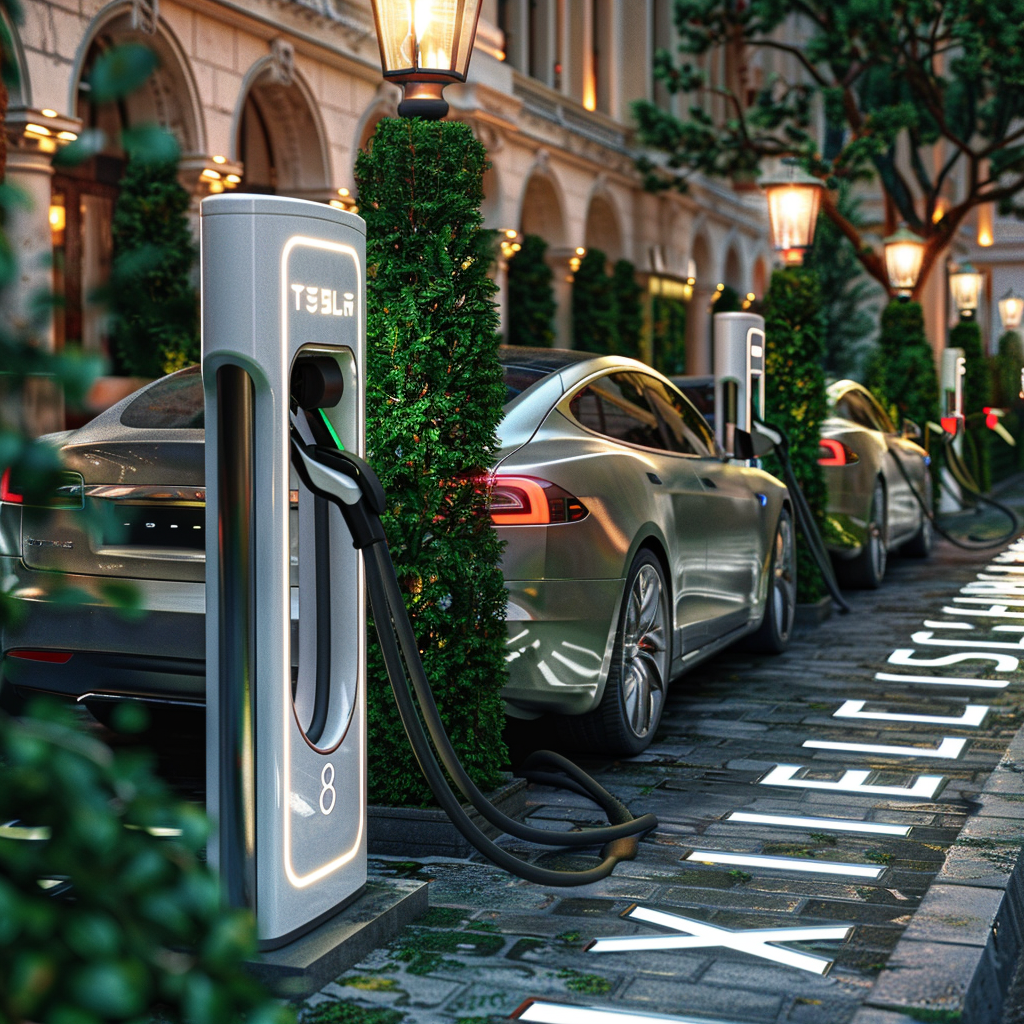
Electric vehicles (EVs) are transforming the transportation landscape, offering a cleaner, more sustainable alternative to traditional gasoline-powered cars. As cities around the world grapple with the challenges of air pollution, EVs present a promising solution to reduce urban air pollution and improve public health.
Growth of the EV Market
The market for electric vehicles is expanding rapidly. Technological advancements have led to improved battery efficiency, longer driving ranges, and faster charging times. Major automakers are increasingly investing in EV production, with many pledging to phase out internal combustion engines within the next few decades. Governments are also playing a crucial role by offering incentives such as tax credits, rebates, and subsidies to encourage EV adoption. Public awareness about environmental issues and the benefits of EVs is also driving this shift.
Reduction in Urban Pollution
One of the most immediate benefits of EVs is the reduction of tailpipe emissions. Traditional vehicles emit pollutants such as nitrogen oxides (NOx), carbon monoxide (CO), and particulate matter (PM), which contribute to smog and respiratory problems. EVs produce zero tailpipe emissions, directly reducing these harmful pollutants in urban areas. This leads to cleaner air and better health outcomes for city residents.
Noise Pollution
EVs are significantly quieter than their gasoline counterparts. The reduction in noise pollution contributes to a more pleasant and less stressful urban environment. This is particularly beneficial in densely populated areas where noise from traffic can be a major source of discomfort and health issues.
Supporting Infrastructure
The growth of the EV market is accompanied by the expansion of charging infrastructure. Cities are increasingly investing in public charging stations, making it easier for residents to switch to electric vehicles. Innovations such as fast chargers and wireless charging are making EVs more convenient for everyday use. Additionally, many businesses and residential complexes are installing charging stations, further supporting the transition to electric transportation.
Economic Benefits
The adoption of electric vehicles can also bring economic benefits. Operating an EV is generally cheaper than a gasoline vehicle due to lower fuel and maintenance costs. EVs have fewer moving parts, which means less wear and tear and lower repair costs. The development and expansion of the EV market create jobs in manufacturing, maintenance, and charging infrastructure sectors.
Challenges and Solutions
While the benefits of EVs are clear, challenges remain. The initial cost of purchasing an electric vehicle is still higher than that of traditional cars. However, this gap is narrowing as technology advances and production scales up. Battery disposal and recycling are also critical issues that need addressing to ensure the environmental benefits of EVs are fully realized.
Range anxiety, or the fear that an EV will run out of power before reaching a charging station, is another concern. Ongoing improvements in battery technology and the expansion of charging networks are alleviating these worries. Public education campaigns can help inform potential buyers about the true capabilities and benefits of EVs, further encouraging adoption.
Impact on Urban Planning
The shift to electric vehicles has implications for urban planning. Cities may need to rethink their infrastructure to support increased EV use, such as integrating more charging stations into public spaces and residential areas. Parking policies might evolve to include incentives for EVs, such as dedicated parking spots with charging capabilities. Urban planners are also considering how to integrate EVs into public transportation systems, including electric buses and shared mobility solutions.
Long-term Vision
The widespread adoption of electric vehicles is a key component of a sustainable urban future. As more people switch to EVs, the cumulative effect on air quality and public health will be profound. Cleaner air, reduced noise pollution, and lower greenhouse gas emissions will contribute to healthier, more livable cities. The transition to electric vehicles is not just a technological shift but a vital step towards addressing the environmental challenges of our time.
Embracing electric vehicles is a practical and impactful way to combat urban air pollution and promote a sustainable future. By supporting the growth of the EV market, investing in necessary infrastructure, and encouraging public adoption, cities can take significant strides towards cleaner air and a healthier environment for all.